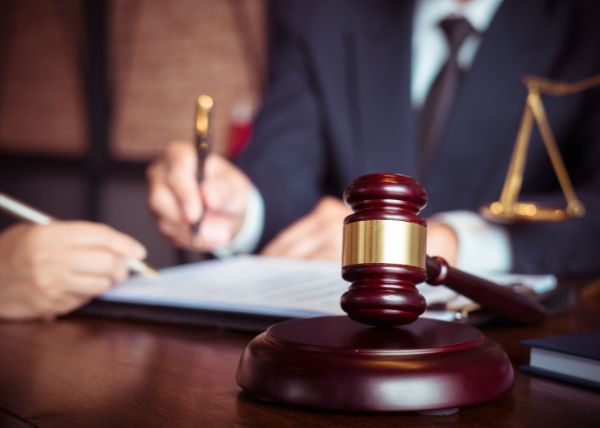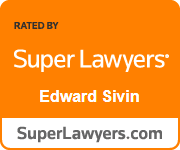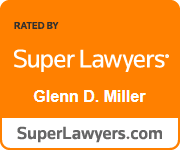New York Civil Rights & Criminal Defense Lawyers
Wrongful Death Lawyer
At Sivin, Miller & Roche LLP, we understand that no legal settlement can ever replace the profound loss of a loved one. When a life is tragically cut short due to another’s negligence, the emotional devastation is immeasurable. Our compassionate team of experienced wrongful death attorneys has dedicated decades to supporting New York families through their darkest moments, providing not just legal representation, but genuine human understanding and support during these unimaginably difficult times. If you have lost a family member due to someone else’s negligence, let our skilled legal team shoulder the legal burden while you focus on healing—call Sivin, Miller & Roche LLP today at 212-349-0300 for a confidential, compassionate consultation that will help you understand your legal rights and options.
What Constitutes a Wrongful Death?

A wrongful death occurs when a person dies due to the negligent, reckless, or intentional actions of another party. In New York, the legal system recognizes that families who have lost a loved one through such circumstances deserve compensation for their devastating loss. Not every death that seems unfair qualifies as a legal wrongful death claim, however.
To successfully pursue a wrongful death claim in New York, several key elements must be present:
- Negligence or Intentional Harm: The death must result from another party’s negligent or intentional actions. This could include medical malpractice, fatal car accidents, workplace accidents, defective products, criminal actions, or medical errors that directly cause a fatality.
- Demonstrable Damages: The death must have caused quantifiable financial and emotional damages to the deceased’s surviving family members. These damages can include lost future income, loss of companionship, funeral expenses, medical costs incurred before death, and the emotional trauma of losing a loved one.
- Legal Standing of Survivors: New York law specifies that the personal representative of the deceased’s estate must file the wrongful death claim. This is typically a close family member, such as a spouse, child, or parent, who has been legally appointed to represent the estate’s interests.
- Evidence of Causation: There must be clear evidence linking the responsible party’s actions directly to the death. This requires proving that the death would not have occurred if not for the defendant’s negligence or harmful conduct.
Common scenarios that may constitute wrongful death include:
- Fatal motor vehicle accidents caused by drunk or reckless driving
- Medical procedures performed with substandard care
- Workplace accidents resulting from safety violations
- Defective products that cause fatal injuries
- Fatal assaults or criminal actions
At Sivin, Miller & Roche LLP, we understand that no legal settlement can truly compensate for the loss of a loved one. Our compassionate and experienced wrongful death attorneys are committed to helping families seek justice and financial support during their most difficult times.
Who Can File a Wrongful Death Lawsuit?
In New York, the right to file a wrongful death lawsuit is specifically defined by state law. Unlike some personal intuition might suggest, not every family member can automatically file a claim. The law establishes a clear hierarchy and process for pursuing a wrongful death action.
Legally Authorized Representatives:
- Personal Representative of the Estate: Only the official personal representative of the deceased’s estate has the legal standing to file a wrongful death lawsuit. This individual is typically:
- Appointed by the court
- Often a close family member such as a spouse, adult child, or parent
- Responsible for acting in the best interests of all surviving beneficiaries
- Potential Beneficiaries: While the personal representative files the lawsuit, the potential beneficiaries who may recover damages include:
- Spouse
- Children
- Parents
- Other financial dependents of the deceased
- Individuals who can demonstrate financial dependency on the deceased at the time of death
Key Considerations:
- The personal representative must file the lawsuit on behalf of the deceased’s “distributees” – those who would be entitled to inherit under New York’s intestate succession laws.
- The lawsuit seeks to recover damages that compensate survivors for economic and emotional losses resulting from the death.
- If no personal representative has been appointed, the court can appoint one specifically to pursue the wrongful death claim.
- Time is critical in wrongful death claims. New York’s statute of limitations typically allows two years from the date of death to file a lawsuit, making it crucial to seek legal counsel promptly.
How a Wrongful Death Lawyer Can Help
At Sivin, Miller & Roche LLP, we understand that no legal action can truly heal the profound loss you’ve experienced. Our wrongful death attorneys are committed to providing compassionate, comprehensive legal support during the most challenging time of your life. We work tirelessly to secure the justice and financial compensation your family deserves.
Comprehensive Legal Support
Thorough Investigation
Our legal team conducts an exhaustive investigation into the circumstances of your loved one’s death. We:
- Gather and preserve critical evidence
- Interview witnesses
- Consult with expert witnesses, including medical professionals, accident reconstructionists, and industry specialists
- Analyze medical records, accident reports, and other crucial documentation
Complex Legal Navigation
Wrongful death claims involve intricate legal processes. We:
- Identify all potential liable parties
- Determine the full extent of potential compensation
- Handle all complex legal filings and court procedures
- Protect your family from insurance company tactics designed to minimize compensation
Comprehensive Damage Calculation
We meticulously calculate the full economic and emotional impact of your loss, including:
- Lost future income and potential earnings
- Loss of companionship and guidance
- Medical and funeral expenses
- Emotional distress and suffering
- Potential punitive damages in cases of extreme negligence
Negotiation and Litigation
Our experienced attorneys provide:
- Strategic negotiations with insurance companies
- Aggressive courtroom representation
- A commitment to maximizing your potential compensation
- The ability to take your case to trial if a fair settlement cannot be reached
Personalized Approach
At Sivin, Miller & Roche LLP, we recognize that each wrongful death case is unique. We provide:
- Compassionate, personalized legal counsel
- Regular, transparent communication
- No upfront costs – we work on a contingency basis, meaning you pay nothing unless we win your case
- A dedicated team that treats your case with the utmost respect and sensitivity
Our Commitment to You
We understand that pursuing a wrongful death claim can feel overwhelming. Our team provides not just legal representation, but compassionate support throughout the entire process. We fight to hold responsible parties accountable and help your family begin the process of healing.
Free Consultation
We offer a free, confidential consultation to help you understand your legal options. There’s no obligation, and everything you share with us remains strictly confidential.
What Damages Can I Pursue in a Wrongful Death Lawsuit?
In a wrongful death lawsuit, surviving family members may seek compensation for both economic and non-economic damages. These damages are designed to address the financial and emotional hardships caused by the untimely death of a loved one. In New York, the following types of damages are commonly pursued:
1. Economic Damages
- Medical Expenses: Costs incurred for the medical care of the deceased before their passing.
- Funeral and Burial Costs: Expenses associated with laying your loved one to rest.
- Loss of Financial Support: Compensation for the income and benefits the deceased would have provided.
- Loss of Services: The value of household services, childcare, or other contributions the deceased made to the family.
2. Non-Economic Damages
- Loss of Parental Guidance: For children who have lost a parent, this accounts for the emotional and developmental impact of losing a guiding figure.
- Loss of Companionship: Compensation for the absence of emotional support, love, and affection the deceased provided.
3. Punitive Damages
In cases of gross negligence or intentional misconduct, punitive damages may be pursued to punish the responsible party and deter similar behavior.
It’s important to note that New York law limits wrongful death claims to losses experienced by the surviving family members and does not typically provide compensation for the deceased’s pain and suffering prior to death. However, this can vary depending on the case. A skilled wrongful death attorney at Sivin, Miller & Roche LLP can help you understand your rights and ensure you seek the maximum compensation available.
Who May Be Held Liable in a Wrongful Death?
Determining liability in a wrongful death case requires identifying the party or parties whose negligence or misconduct directly caused your loved one’s death. In New York, various individuals, businesses, or entities may be held accountable, depending on the circumstances of the case.
Common examples include:
Motor Vehicle Operators
Drivers who engage in reckless behavior, such as speeding, driving under the influence, or texting while driving, may be held liable if their actions result in a fatal accident.
Employers
If an employee’s negligence leads to a fatal incident while performing their job duties, their employer may share liability under the doctrine of vicarious liability.
Property Owners
Property owners who fail to maintain safe premises can be held accountable if hazardous conditions, such as unaddressed slip-and-fall risks or structural defects, result in a wrongful death.
Medical Professionals and Facilities
Doctors, nurses, or healthcare facilities may be liable for medical malpractice, including misdiagnosis, surgical errors, or failure to provide timely treatment.
Manufacturers and Product Designers
Companies that produce defective products, such as unsafe vehicles, faulty medical devices, or toxic substances, can be held responsible if those defects cause fatal injuries.
Government Entities
Public entities may be liable if unsafe road conditions, poorly designed intersections, or failure to address known hazards lead to a fatal accident.
At Sivin, Miller & Roche LLP, our experienced attorneys conduct thorough investigations to identify all potentially liable parties. By pursuing claims against the appropriate defendants, we strive to secure justice and maximum compensation for your family during this difficult time.
When Tragedy Strikes, We Stand with You
At Sivin, Miller & Roche LLP, we understand that no legal action can undo the pain of losing a loved one. But we can help you seek justice, hold responsible parties accountable, and secure the financial support your family needs to move forward. Our compassionate and experienced wrongful death attorneys are dedicated to fighting for your rights during the most difficult time of your life.
Contact Sivin, Miller & Roche LLP today for a free, confidential consultation. Our team is ready to listen, provide guidance, and help you understand your legal options.
Wrongful Death Lawyer FAQs
What is a wrongful death lawsuit?
A wrongful death lawsuit is a legal action filed by surviving family members or the deceased’s estate against parties whose negligence or misconduct caused the victim’s death.
Who can file a wrongful death claim in New York?
In New York, only the personal representative of the deceased’s estate can file a wrongful death lawsuit. However, damages are pursued on behalf of eligible family members, such as the surviving spouse, children, or parents.
What is the statute of limitations for filing a wrongful death lawsuit in New York?
The statute of limitations for a wrongful death claim in New York is generally two years from the date of the person’s death. Certain exceptions may apply, so consulting an attorney promptly is essential.
What damages can I recover in a wrongful death case?
Families can recover damages for medical expenses, funeral costs, lost financial support, loss of services, and loss of parental guidance or companionship. Punitive damages may also be awarded in cases of egregious misconduct.
How is liability determined in a wrongful death case?
Liability is established by proving that the defendant’s negligent or intentional actions directly caused the death. This often requires evidence such as witness testimony, expert opinions, and documentation.
Can multiple parties be held liable for a wrongful death?
Yes, if more than one party contributed to the death, they may share liability. For example, both a negligent driver and a vehicle manufacturer could be responsible in a car accident involving a defective part.
How long does a wrongful death case take?
The timeline varies depending on the complexity of the case, the number of liable parties, and whether the case settles or proceeds to trial. Many cases take several months to a few years to resolve.
Can I file a wrongful death claim if the deceased was partially at fault?
Yes, New York follows a comparative negligence rule, meaning damages may be reduced based on the deceased’s percentage of fault. However, a claim can still be pursued.
What is the difference between a wrongful death claim and a survival action?
A wrongful death claim seeks damages for the losses experienced by the surviving family. A survival action seeks compensation for the pain and suffering the deceased endured before death.
Do I need an attorney to file a wrongful death lawsuit?
While it is not legally required, having an experienced wrongful death attorney is crucial. An attorney can handle complex legal procedures, gather evidence, and advocate for maximum compensation on your behalf.
Tell Us About Your Case
Fields marked with an * are required
"*" indicates required fields



